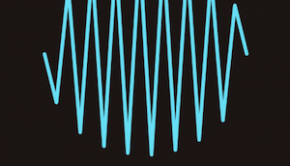Edge of the Soul
 |
Album Title: Edge of the Soul |
| Record Label: Bandcamp |
|
| Catalog No.: N/A |
|
| Release Date: August 22, 2014 |
|
| Purchase: Download at Bandcamp |
Overview
Edge of the Soul is the latest independent album released by Yuji Takenouchi, who goes (and is perhaps more well-known) by the aliases of TECHNOuchi and missingsoul. Takenouchi has been composing and sound-designing for videogames for over twenty years — videogames that include Space Manbow, Metal Gear 2: Solid Snake, X-Men, and Golfing Greats 2 — yet he has remained under the radar for much of that period. He has arguably garnered the most attention recently for his exemplary role as sound director for From Software’s Demon’s Souls and Dark Souls, albeit in a way where admiration isn’t ordinarily attached to a consciousness of his name. I’ve been fairly ignorant of Takenouchi’s work myself, but Edge of the Soul has made me be sure to anticipate his future projects. It has also prompted me to review his catalogue and realize that he has been responsible for my favorite musical pieces on certain albums and soundtracks, including his tempestuous arrangement of “Bloody Tears” on Akumajou Dracula Tribute Vol. 1, and his darkly shimmering (and uncredited) file select/character creation theme for Dark Souls.
Body
Past a point, one of Takenouchi’s musical patterns has been a type of lushness. This can be heard, for example, in the aforementioned tracks, and it can also be heard even in his harder-edged dance tracks — a rich, enticingly palpable ribbon woven through the whole, with sonic roots stemming from the ambient genre. It’s a pattern that can also be heard in the majority, if not all, of Edge of the Soul. The exceptions to this may be the bookending tracks “Jeux Interdits” and “Across Your Mind -rionosphere-” (lyrics written by rionos and performed by smany), with their relative minimalism and greater amount of negative space. Considering their placement and characteristics, this could very well have been intentional, but whatever the case it works pretty well. Edge of the Soul is an energetic album whose tracks are simultaneously haloed with a dreamy glow, at once inviting dance and lidded eyes, so it’s nice to have a couple of markers that establish and lead out of that relaxed overtone.
When first hearing this album, my attention was grabbed firmly and immediately by the striking resemblance “Jeux Interdits” has to the music of recently departed Rei Harakami — not only in its timbre, but also in its liberal usage of pauses, anticipatory chord progressions, and lullaby-like air. As far as I’m concerned, this is a wonderful parallel to have. Part of what losing Harakami meant was losing a sort of music that simply was not being made by anyone else. Now, with him gone, it’s moving to find his spirit carried on in some way.
For the next eight tracks, the album sinks itself into a thudding, swirling, flashing style best described as house merged with jazz, leaning towards Latin jazz. These are fairly long tracks, with the longest clocking in at eight minutes, and they often carry one or several elements throughout their whole, such as the woody, Reich-like piano chords in “Amour en Juillet.” It’s my opinion (based on listening to EDM for several years) that EDM, compared to many other genres, has a greater likelihood of its repetitions turning into drudgery, or of having a clear line dividing listening enjoyment in a club and listening enjoyment at home.
Takenouchi avoids these possibilities with finesse, partly through bountiful percussion and rhythmic variety and vigor. The second track, “Across Your Mind”, exemplifies this right away. A synthetic bass drum and hi-hat carry the clear “electronic” part of the equation, and are accompanied by a triangle, a shaker, hand drums, claps, tappings, swells, and crashings of cymbals, and strikes upon a drum kit’s drums. These are so texturally, rhythmically, and interactively rich that “Across Your Mind” feels like its structure is much more than the usual build-up/break/climax/unwind structure of contemporary dance music, even though it still basically adheres to that. All the while, a couple of chords breathe in and out and are given enough effect-tweaks by Takenouchi to retain their flavor until the end.
“Le Soleil Eternel”, one of my favorites here, really stresses that rhythmic vigor and jazzy manner with its deep, vibrating triplets from an upright bass that has a never-quite-resolved tonal interplay with the chords and melodies, and its infectious Samba cymbal patterns. Another personal favorite, “Poisson D’Avril” is a breezy and vibrant excursion into polyrhythm, combining a 4/4 precedent with a simple bassline in triple time around the two-minutes mark, and sticking to that concurrence for most of the track’s remainder.
Improvisational elements also contribute to the album’s stamina, and create an interesting duality that pairs a looser organic energy with the straightforwardness of EDM/house structure. Take, for example, “Brand New Day”: notes from a piano are stippled over prickly synth-stabs; afterwards, Takenouchi uses a trumpet with a Harmon mute to melodically doodle in a more tonally carefree way. Or take “Amour et Juillet”, where lavish harmonies and unflagging percussive bursts and thumps are decorated by a clean electric guitar’s notes for a minute-and-a-half, and then an organ’s blurry warblings.
My choice track from the album, “In Your Phantom”, just happens to cover all of the above attributes of rhythmic/percussive variety, improvisation, and lushness. It also feels like the track with the most dramatic course of evolution. Around its halfway point, it moves away from a steady diet of piano and upright bass and explodes into a stunning ocean of synthetics and escalating percussion. It’s one of the loveliest compositions I’ve heard all year. Takenouchi shows real musical acumen throughout the piece in a number of ways, and one of them is his inclusion of an accidental in the latter half’s bassline, right before its loop point, giving that moment a continual, dissonant slur that magnifies the overall dreaminess.
If there is anything to be disapproving of, I’d have to say that I could do without “Across Your Mind -rionosphere-”, and would have preferred “Lumiere et une Ombre” to have assumed the role of the closer. I do appreciate that Takenouchi placed two slower-paced tracks near the end to perhaps better lead the listener out of all the preceding energies, but “Lumiere et une Ombre” is such a gorgeous, inner-lit piece — reminiscent of the softly aching ambient music of Laurence Rapaccioli, a.k.a. Arksun — that it’s a bit disappointing to have it be followed up by a track that doesn’t stir up any particular or potent emotions. Of course, some of my disconnect could have to do with the final track having lyrical content that is in a language (Japanese) which I mostly do not understand, but I do find the bare isolation of the chordal elements from the original “Across Your Mind” to be on the less flavorful side of things.
Summary
Edge of the Soul is a fantastic album, both thematically concentrated and full of diversity and delights. Its spirited, dance-provoking sounds come at an interesting time, when summer has just transitioned to fall, and may serve as a good way to reflect on those warmer days gone by; for others, its colorfulness and tones of transience might make it an excellent autumnal album. It can be sampled in full below or be purchased for 1000 JPY (approximately 10 USD) on Yuji Takenouchi’s Bandcamp page.
Do you agree with the review and score? Let us know in the comments below!
4.5
Posted on September 24, 2014 by Ario Barzan. Last modified on September 28, 2014.














